Почему так важно найти надежного поставщика в Китае
Поставки продукции из Китая является ключевой стратегией для предприятий по всему миру. Благодаря своей мощной производственной базе, доступным ценам и широкому ассортименту продукции Китай является лучшим выбором для подрядчиков по проектам и владельцев брендов, особенно игрушки, плитка, кухонные шкафы, дверь и окна, и светотехническая промышленностьОднако поиск надежного поставщика может оказаться сложной задачей из-за размера и сложности рынка.
Надежность имеет решающее значение при выборе поставщика. Надежный партнер гарантирует своевременные поставки, высококачественную продукцию и бесперебойную коммуникацию, помогая вам избегать распространенных проблем, таких как задержки, низкое качество или недоразумения в международном бизнесе.
В этой статье мы обсудим типы поставщиков, доступных в Китае, дадим советы по выбору подходящего из них и рассмотрим некоторые из лучших платформ и стратегий для поиска надежных производителей и поставщиков.
Типы поставщиков в Китае

Прежде чем углубляться в методы поиска надежных поставщиков, важно понять различные типы поставщиков, доступных в Китае.
OEM (производитель оригинального оборудования): Эти производители производят товары по вашим точным спецификациям. Вы предоставляете дизайн, материалы и часто даже компоненты, а они собирают конечный продукт. OEM-производители идеальны, когда у вас есть очень конкретный продукт и вам нужен точный контроль над производственным процессом.
ODM (производитель оригинального дизайна): ODM предлагают более высокий уровень гибкости. Они могут проектировать и разрабатывать продукты на основе ваших требований, часто используя собственный опыт и инновации. Это может быть полезно, если вам нужен продукт, отвечающий вашим конкретным потребностям, но у вас нет внутренних возможностей проектирования.
CM (Контрактный производитель): CM похожи на OEM, но они часто обрабатывают более широкий спектр производственных процессов. Они могут производить товары на основе предоставленных вами проектов и спецификаций, но они также могут заниматься поиском материалов, контролем качества и даже логистикой.
ТК (Торговая компания): Торговые компании выступают в качестве посредников, связывая вас с другими производителями и поставщиками. Они могут закупать широкий ассортимент продукции у разных производителей, часто по конкурентоспособным ценам. TC могут быть ценным ресурсом для предприятий, которым не хватает ресурсов или опыта, чтобы самостоятельно ориентироваться на сложном китайском рынке.
Как отличить торговую компанию от фабрики
Чтобы отличить торговую компанию от завода, посмотрите, какую роль они играют в цепочке поставок.
Фабрика напрямую занимается производством товаров, контролирует весь процесс производства и обеспечивает контроль качества. С другой стороны, торговая компания выступает в качестве посредника, закупая продукцию у разных производителей и перепродавая ее покупателям.
В то время как фабрика фокусируется на производстве, торговая компания фокусируется на дистрибуции и продажах. Расположение также может быть подсказкой — фабрики обычно располагаются вблизи производственных узлов, в то время как торговые компании часто базируются в коммерческих центрах, что облегчает международную торговлю. Знание как найти поставщиков в Китае которые соответствуют вашим потребностям — будь то фабрики или торговые компании — сделают вашу стратегию снабжения более эффективной.
Советы по поиску производителя в Китае
Выбор правильного производителя в Китае имеет решающее значение для успеха вашего бизнеса. При наличии огромного количества поставщиков, выбор правильного решения может показаться непосильной задачей. Ниже приведены некоторые лучшие оптовые сайты Китая для выбора производителя, который будет соответствовать вашим потребностям.
1. Торговые выставки
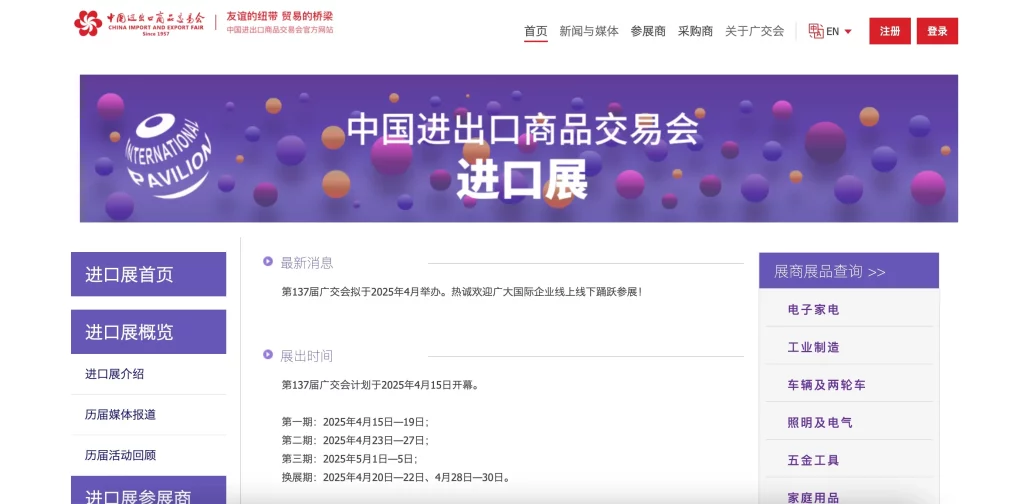
Посещение выставок — один из самых эффективных способов найти поставщиков в Китае. Торговые выставки предоставляют уникальную возможность лично встретиться с производителями, увидеть их продукцию и наладить отношения.
The Кантонская ярмарка, проводимая в Гуанчжоу дважды в год, является одной из крупнейших торговых выставок в Китае и главным событием для поиска поставщиков продукции. Вы не только встретитесь с производителями лицом к лицу, но и сможете напрямую обсудить условия, проверить качество продукции и принять более обоснованные решения. Если вы хотите принять участие в ярмарка кантона, полное руководство имеет для вас решающее значение.
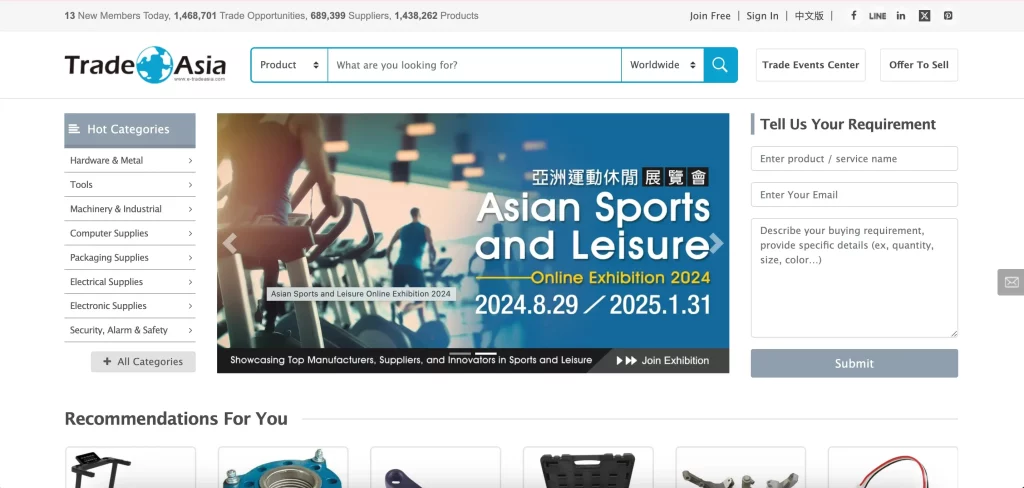
eTradeAsia — отличная платформа для поиска производителей в Китае. Это торговая площадка B2B, которая связывает компании с производителями и поставщиками, специализирующимися на электронике, оборудовании и потребительских товарах. Платформа предлагает каталог проверенных поставщиков, что упрощает поиск надежных производителей в Китае.
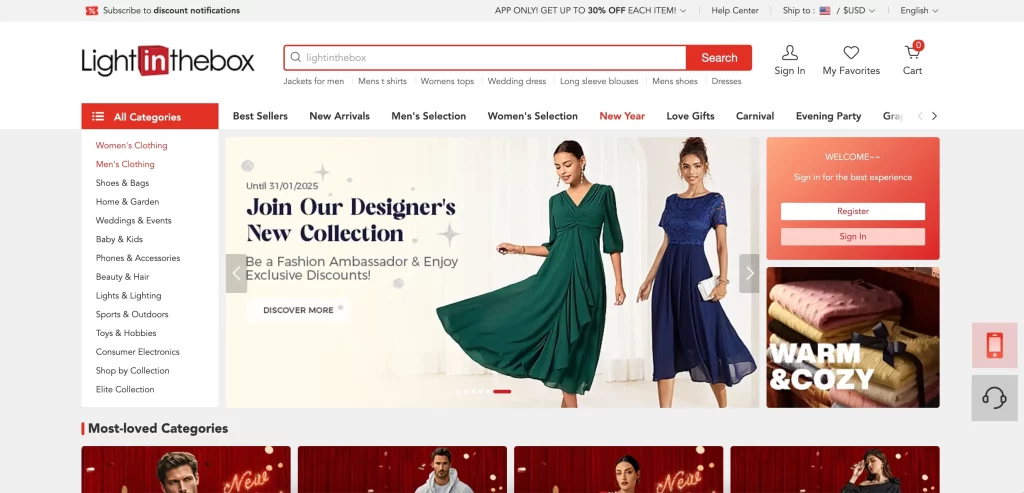
LightintheBox — популярный интернет-магазин, предлагающий широкий ассортимент товаров, включая электронику, одежду и товары для дома, все от китайских производителей. Хотя LightintheBox — это в первую очередь сайт для розничной торговли, он также служит полезным ресурсом для компаний, ищущих производителей.
Они предлагают варианты оптовых закупок, а их сеть поставщиков налажена и надежна.
4. Alibaba.com
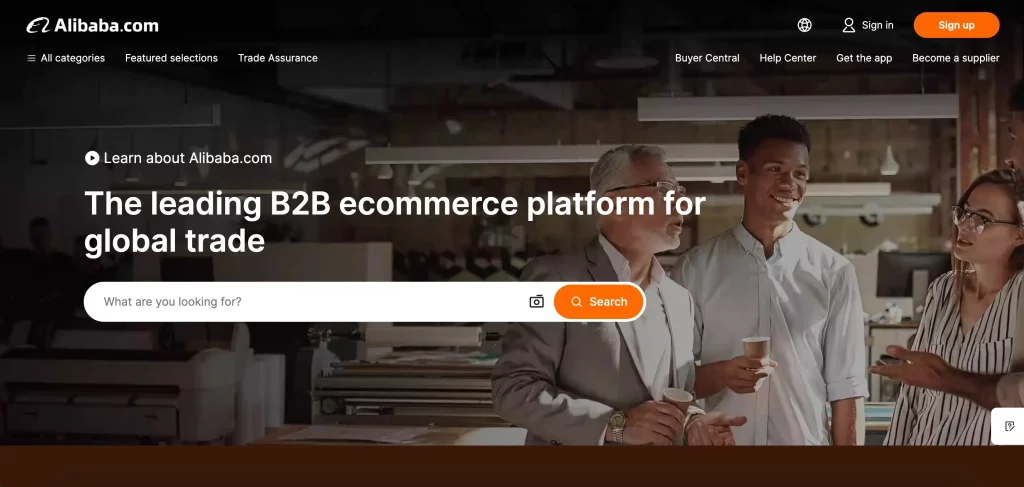
Alibaba — крупнейшая в мире торговая площадка B2B и популярная платформа для поиск поставщиков в Китае. Он связывает предприятия с производителями, оптовиками и торговыми компаниями по всему миру.
Вы можете найти множество поставщиков на основе ваших требований к продукту, с фильтрами, сужающими выбор на основе цены, сертификатов и отзывов клиентов. Программа проверки поставщиков Alibaba добавляет уровень доверия, позволяя вам увидеть, был ли поставщик проверен сторонними организациями.
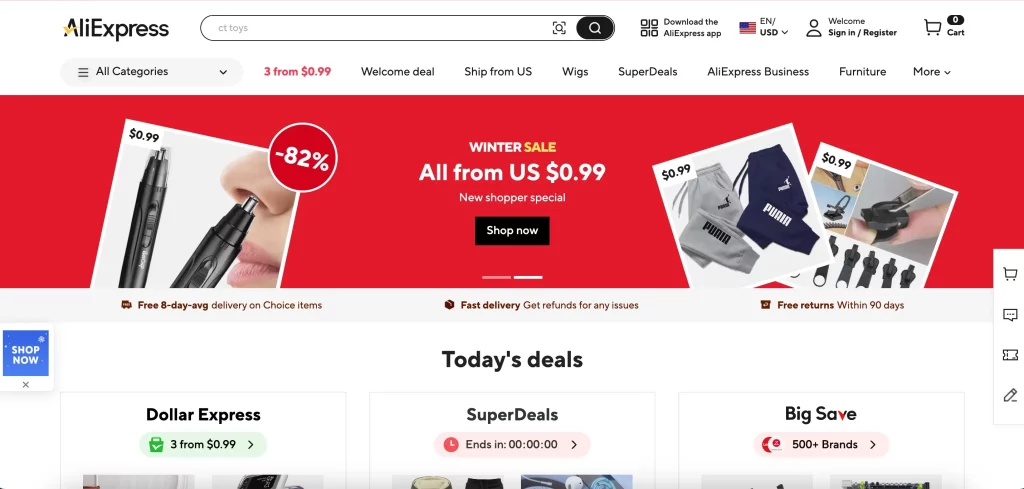
AliExpress, родственная платформа Alibaba, в основном используется для заказов небольшого объема. Хотя ее часто используют индивидуальные покупатели, многие поставщики на AliExpress предлагают оптовые цены на оптовые заказы, что делает ее отличным вариантом для малого бизнеса, ищущего производителей. Тем не менее, вам все равно следует проявить должную осмотрительность при выборе поставщика, особенно при покупке больших партий.
6. Каталог проверенных поставщиков SaleHoo
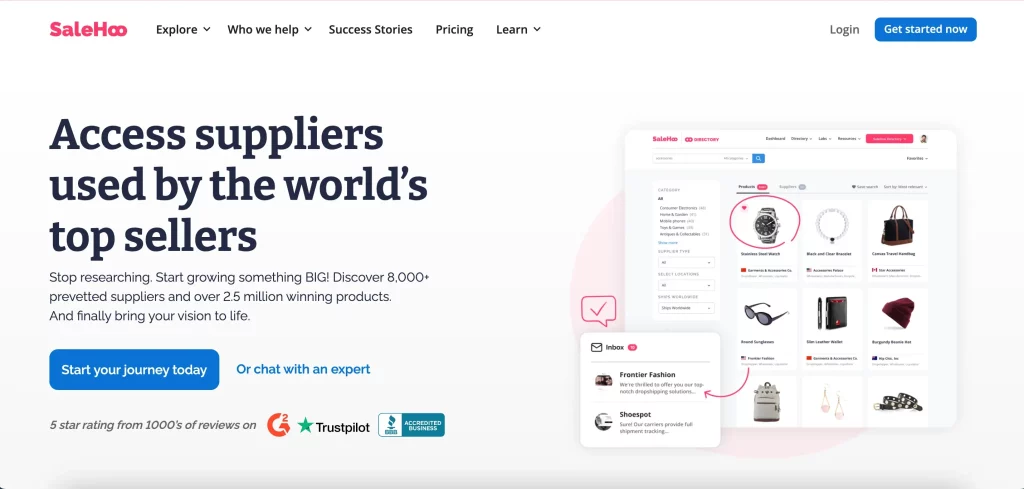
Оптовый каталог SaleHoo — еще одна отличная платформа для поиска поставщиков в Китае. У них есть проверенный каталог поставщиков с широким спектром производителей в различных отраслях. SaleHoo известен тем, что предоставляет предварительно проверенных поставщиков, что может сэкономить вам время и усилия при поиске надежных производителей.
7. Производители и торговые площадки в Гонконге, Китае и Тайване

Отличным ресурсом для связи с поставщиками в Гонконге является Совет по развитию торговли Гонконга (HKTDC) веб-сайт, который предоставляет комплексную торговую площадку для поиска проверенных производителей и поставщиков. HKTDC предлагает широкий ассортимент продукции, от электроники до моды, и помогает компаниям обеспечить надежный процесс поиска поставщиков. Хотя поиск поставщиков из этих регионов может быть немного более затратным, преимущества — такие как более надежная защита интеллектуальной собственности, лучшее обслуживание клиентов и более надежная правовая база — могут обеспечить душевное спокойствие и долгосрочную ценность.
8. MFG.com
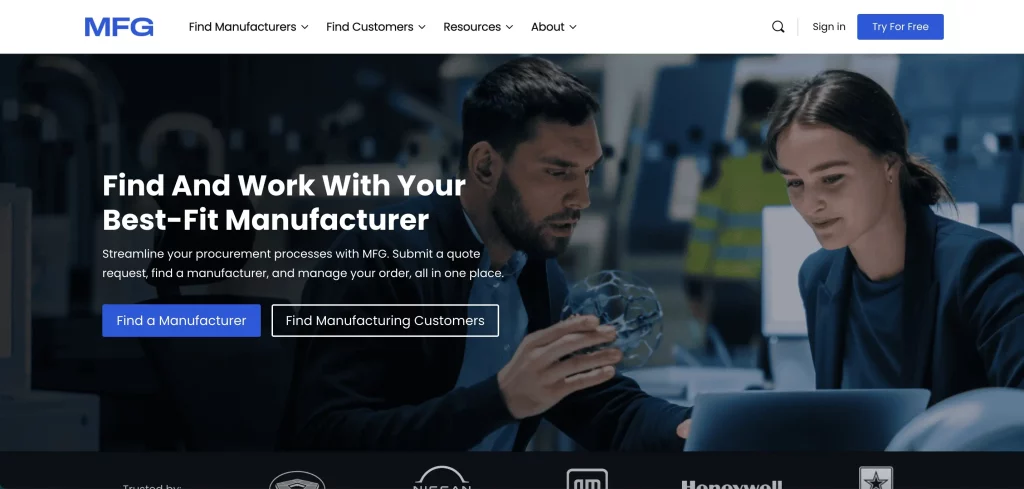
MFG.com — это глобальная производственная торговая площадка, которая связывает покупателей с производителями по всему миру, включая Китай. Платформа специализируется на прецизионных деталях, включая компоненты для таких отраслей, как автомобилестроение, электроника и аэрокосмическая промышленность. Это отличная платформа, если вы ищете производителя, который предлагает специализированные производственные возможности.
9. Производители одежды по всему миру
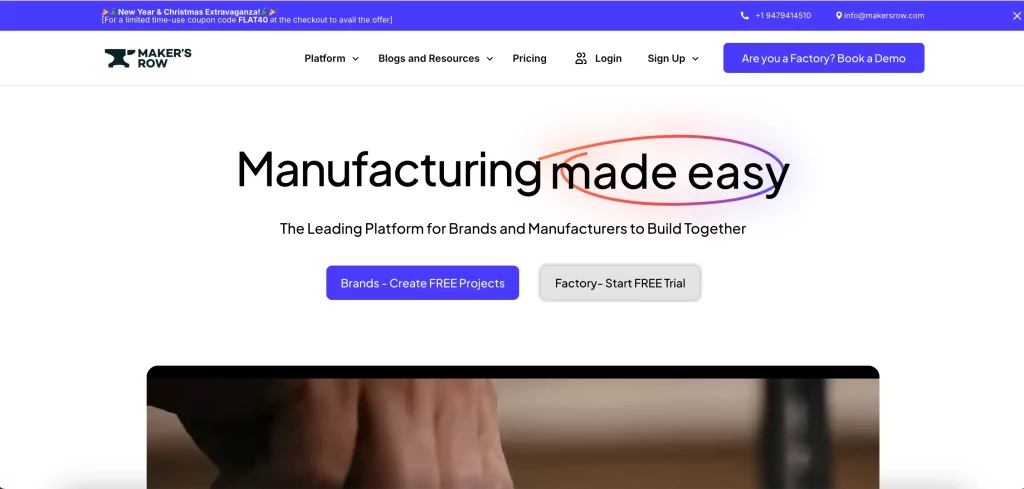
Если вы работаете в индустрии моды или одежды, вам могут помочь платформы, специализирующиеся на производстве одежды. найти поставщиков в Китае. Такие сайты как Мейкерс Роу и Портал индустрии моды представляют каталог производителей одежды из Китая и других стран. Многие из этих производителей могут создавать индивидуальные линии одежды в соответствии с вашими конкретными требованиями.
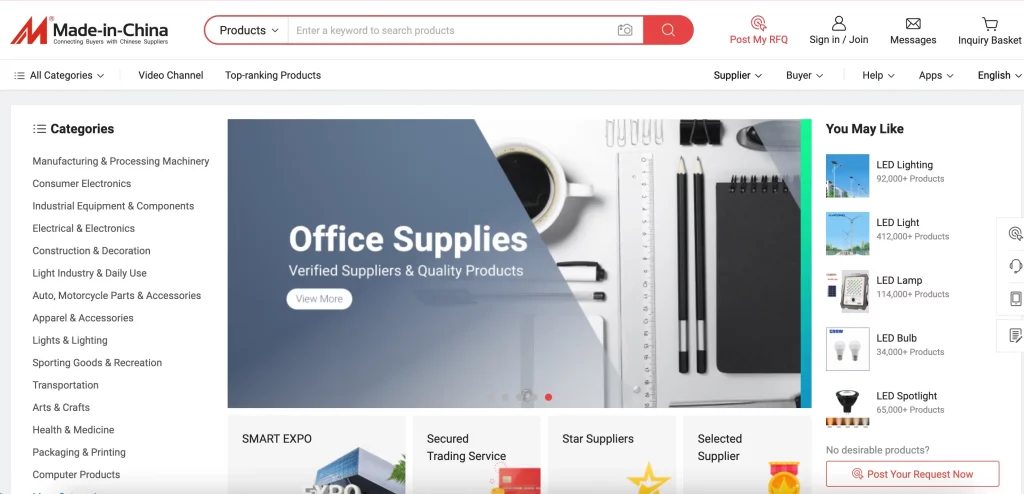
Made-in-China.com — еще одна популярная торговая площадка B2B, которая связывает международных покупателей с китайскими поставщиками. Она предлагает широкий выбор товаров: от бытовой электроники до товаров для дома. Поставщики на этой платформе часто сертифицированы, и вы можете купить напрямую из Китая и фильтровать результаты на основе их надежности и отзывов предыдущих покупателей.
11. Социальные сети

Социальные сети, такие как LinkedIn и WeChat также может помочь в поиск надежных поставщиков. LinkedIn позволяет вам искать производителей и поставщиков в Китае, в то время как WeChat является важным инструментом для общения и налаживания связей в китайском деловом мире. Многие поставщики и производители в Китае используют WeChat для обмена своими портфолио, общения с потенциальными клиентами и обсуждения условий.
12. Гугл
Иногда вам может помочь простой поиск в Google. найти поставщиков в Китае. Используйте конкретные поисковые термины, такие как «лучшие поставщики в Китае для [продукта]» или «Китайский производитель [продукта]», чтобы найти производителей. Обязательно тщательно оцените компании по отзывам клиентов, сторонним аудитам и любым другим доступным ресурсам.
Как вести переговоры с китайскими поставщиками
После того, как вы определили потенциального поставщика, следующим шагом будет обсуждение условий вашего партнерства. Переговоры — это деликатный процесс, особенно когда имеешь дело с поставщиками из разных культур. Вот несколько ключевых советов по эффективному ведению переговоров с китайскими поставщиками:
1. Будьте ясны и подробны
Четко изложите все ожидания, такие как цены, сроки поставки и стандарты качества. Чем больше подробностей вы предоставите, тем легче поставщику будет выполнить ваши требования.
2. Ознакомьтесь с условиями оплаты
Условия оплаты в Китае сильно различаются. Обычно поставщики требуют депозит авансом, а остаток выплачивается по факту поставки. Обязательно согласуйте графики оплаты, которые устраивают обе стороны, и всегда используйте безопасный способ оплаты.
3. Постройте долгосрочные отношения
Китайские поставщики ценят долгосрочные отношения. Установление доверия и понимание культурных нюансов китайского делового этикета сделают переговоры более гладкими и успешными.
4. Не бойтесь уйти
Если условия не кажутся выгодными, не бойтесь уйти. В Китае много поставщиков, поэтому важно найти того, который не только надежен, но и предлагает условия, подходящие для вашего бизнеса.
5. Рассмотрите возможность использования местного агента по снабжению
Если вы не знакомы с местной деловой культурой, найм агента по снабжению может помочь. Эти агенты выступают в качестве посредников между вами и поставщиком, помогая сгладить переговоры и гарантируя, что вы получите лучшую сделку.
Как сделать правильный выбор для вашего бизнеса
Поиск надежного поставщика в Китае имеет решающее значение для успеха вашего бизнеса. Правильный поставщик может сэкономить вам время, деньги и массу стресса. Следуя советам и используя платформы, упомянутые в этой статье, вы сможете связаться с надежными поставщиками и построить прочные, долгосрочные деловые отношения.
Помните, процесс закупки в Китае не должен пугать. Уделяя время исследованию, оценке потенциальных поставщиков и эффективному ведению переговоров, вы настроите свой бизнес на успех. Независимо от того, являетесь ли вы владельцем бренда или подрядчиком проекта, закупка надежной продукции из Китая может значительно улучшить вашу прибыль, и при правильном подходе вы сможете уверенно управлять процессом.
Часто задаваемые вопросы:
1. Как узнать, является ли поставщик в Китае законным?
Чтобы убедиться в законности поставщика, проверьте регистрацию его компании, проверьте его сертификаты и найдите отзывы или отклики других клиентов. Вы также можете запросить рекомендации и посетить завод поставщика или нанять стороннюю инспекционную службу для проверки его деятельности.
2. Стоит ли мне работать с производителем или торговой компанией в Китае?
Это зависит от ваших потребностей. Производители производят товары напрямую и часто могут предложить более низкие цены на оптовые заказы. Торговые компании выступают в качестве посредников, что может быть полезно, если вы ищете разнообразные продукты от разных производителей. Однако торговые компании могут иметь более высокие наценки.
3. Каковы лучшие платформы для поиска поставщиков в Китае?
Некоторые из лучших онлайн-платформ для поиска поставщиков в Китае включают Alibaba, Made-in-China, Global Sources и DHgate. Каждая платформа предоставляет доступ к большому пулу поставщиков, а также рейтинги и отзывы, помогающие оценить их надежность.
4. Как я могу гарантировать качество продукции при закупке из Китая?
Запрос образцов продукции, проведение аудита фабрики и использование услуг сторонних инспекций являются ключевыми методами обеспечения качества продукции. Кроме того, четкое информирование поставщика о ваших стандартах качества поможет гарантировать, что они соответствуют вашим ожиданиям.
5. Какова роль агента по снабжению и нужен ли он мне?
Агент по снабжению выступает в качестве посредника между вами и поставщиком, помогая находить надежных поставщиков, обсуждать условия и управлять логистикой. Хотя нанимать агента по снабжению необязательно, они могут быть бесценны, особенно если вы не знакомы с китайским рынком или сталкиваетесь с языковыми барьерами. Существует множество агенты по поиску в Китае, вы можете выбрать подходящий вариант, отвечающий вашим потребностям.
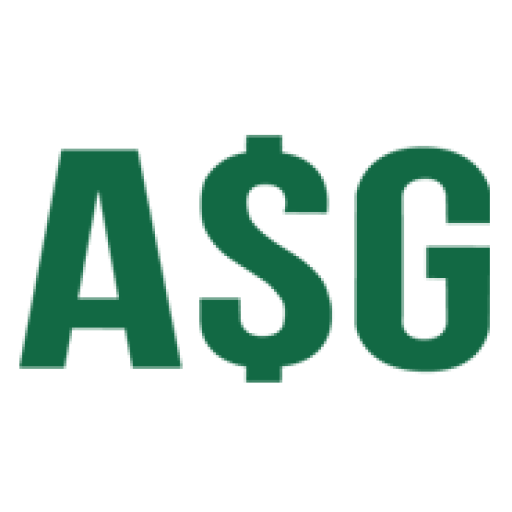

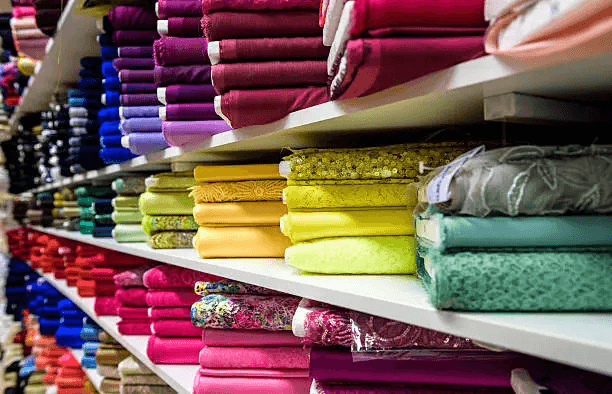

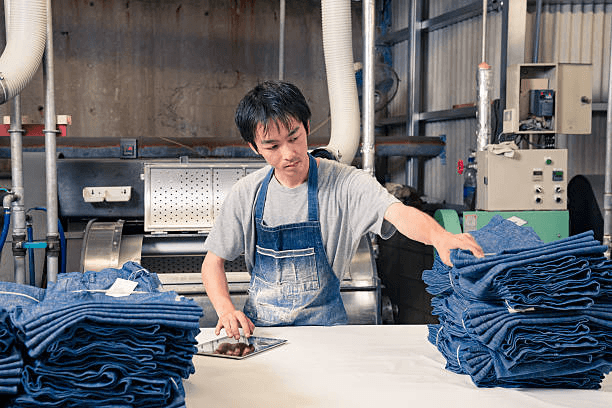


-300x198.png)